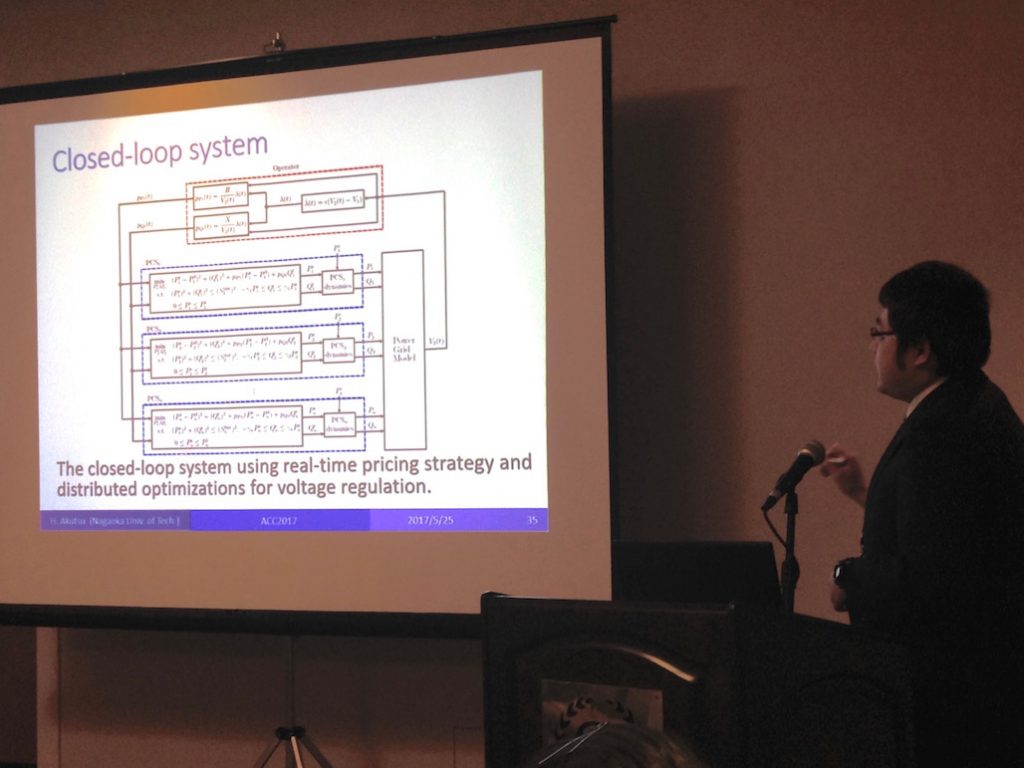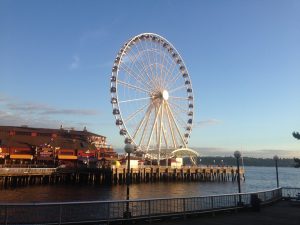Last week I attended the American Controls Conference, an academic conference focused on classical controls and optimization. While this was the first time I had attended, this is one of biggest conferences for the eCAL lab’s research, and my advisor had attended for nine years running!
Attending gave me a fantastic glimpse into my advisor’s academic background and intellectual community. While our research group has grown to focus more on optimization techniques and machine learning, the ACC is a control conference, and most presentations included block, stability analysis, and a dynamic representation of the system and its state.
I found myself most commonly in the decentralized control, game theory, multi-agent system, and smart grid / power system sessions. Because I was new to the conference, I mostly spent the time learning about new approaches and techniques that I wasn’t familiar with. However, the novelty was often overwhelming: most presenters desperately try to cram 3-6 months of research into a twenty-minute slot, and end up leaving the audience confused, bewildered, and unenlightened. The most ambitious presenter I saw managed to cram 52 slides and two 2-minute videos into an 18-minute talk; I don’t think anyone other than his funder got anything from that experience.

Nested equations in a nested block diagram, on slide 35 of many.
The presentations that were most effective:
- Used videos to illustrate complex behavior, particularly for multi-agent systems,
- Avoided detailed math unless necessary,
- Provided a high-level overview of the results before explaining the problem: this was very effective at providing context.
Presentations that made a difference for me:
- Javad Lavaei speaking in a semi-plenary session about his work on convex relaxations of rank-constrained problems.
- Evening special session on the future of automated vehicles, highlighting the need for more developments in safety, security and robustness of autonomous control systems.
- Presentation by Vincent Laurense on the role of friction modeling in autonomous vehicle control- this reignited my old passion for vehicle engineering
Attending helped me humanize academia by breaking down the teacher/student barrier and showing me the networks of peers who had grown and learned together over the years. This conference is the first time I could imagine myself in an academic career, as I enjoyed relaxing and chatting with faculty of different ages and joking about research.
Seattle was also an incredible city to visit in late May, and I enjoyed going on runs through the city to piece together sections that I’d previously only glimpsed in previous visits.

Gorgeous sunset and fantastic seafood to the south, the Olympic mountains to the west, Cascades to the North, and the Space Needle to the East. I can see why Seattle in summer is popular.
